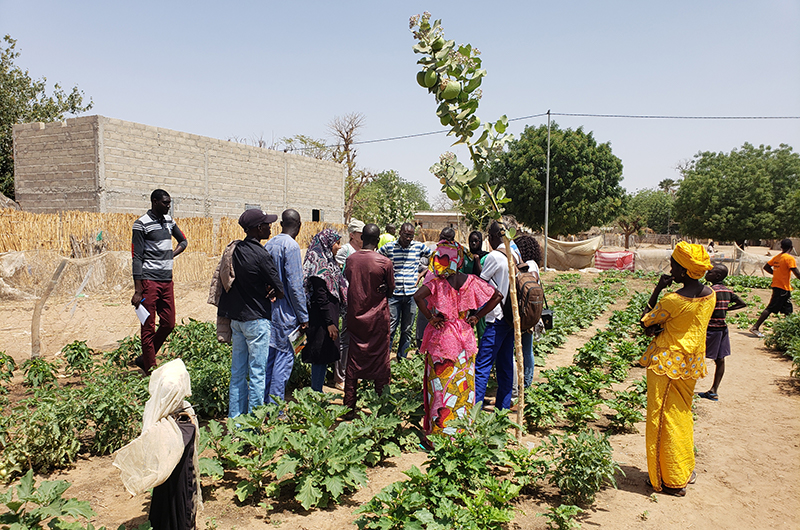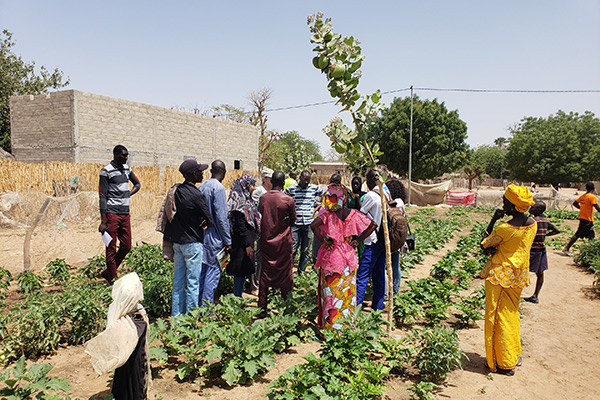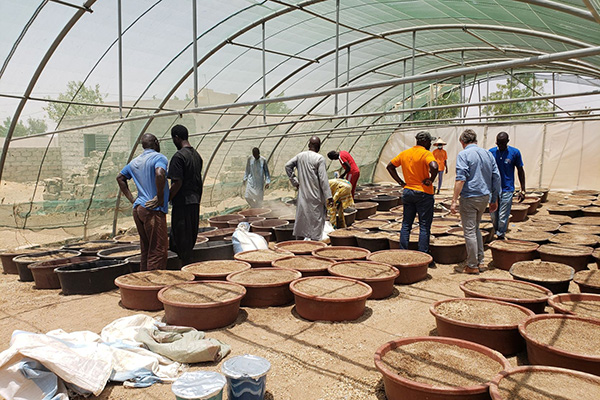Improving yields through inoculation in West Africa
The French National Research Institute for Sustainable Development (IRD), has an original approach of research, expertise, training and knowledge sharing for the benefit of territories and countries, mainly Mediterranean and intertropical.
In Senegal, the IRD collaborates with various academic, institutional and civil society partners to disseminate the practice of inoculation and structure a local supply chain. This technique, which consists in improving the symbiosis between the plant and certain soil microorganisms, increases and stabilizes yields. Although known for a long time, inoculation is barely practiced in West Africa. However, for many food crops, significant gains up to double the production of inoculated crops have been observed thanks to the use of this technique.
Training farmers and their advisors in inoculation
The IRD supports the creation of a local, fair trade sector adapted to the cultures of Senegal. The Roullier Endowment Fund supports the IRD in creating and disseminating from 2022 to 2024 an advisory and technical support system for the production and use of quality biofertilizer inoculums produced locally for farmers and their advisers.
This teaching will consist of modules for the acquisition of key skills whose mastery is essential for the proper functioning and sustainability of this sector. Thus, a dozen training modules will allow the deepening of knowledge on the conditions of application of these symbiotic microorganisms in the different types of soil, coordination between actors and compliance with the regulations.
Discover the others projects of the Roullier Endowment Fund
Field inoculation of cowpea increased seed production from 750 to 1370 kg/ha and improved resistance to water stress.


